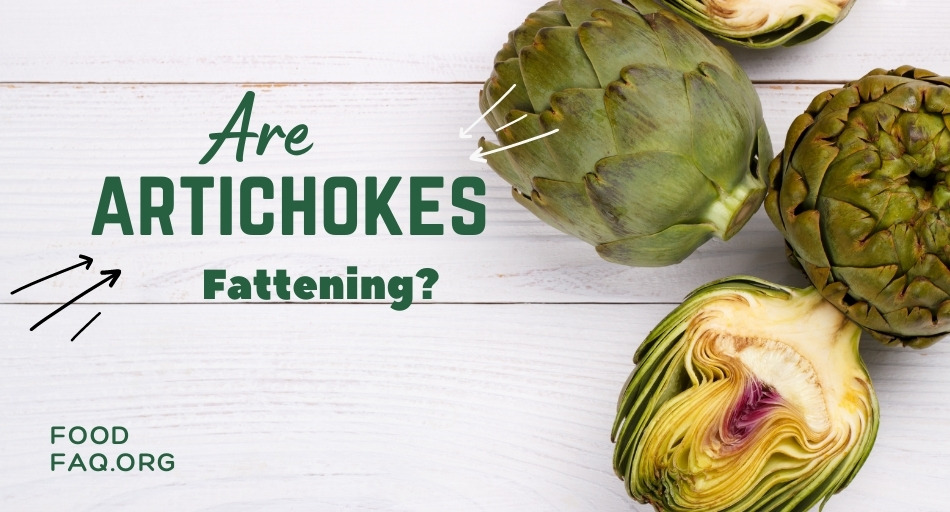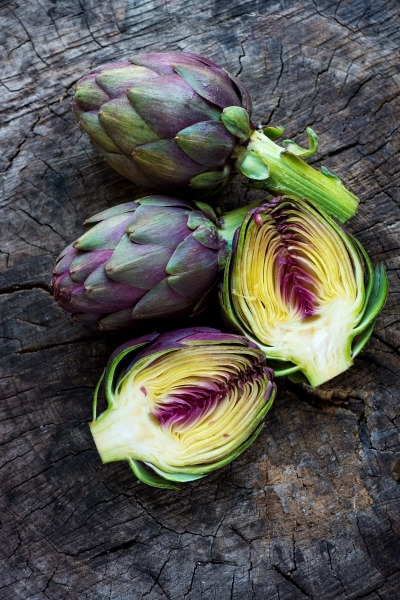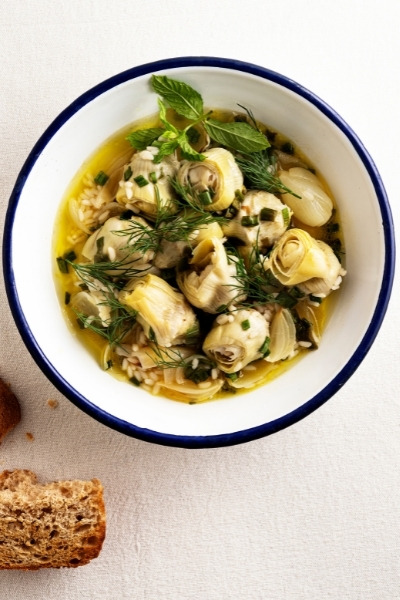Artichoke is a very common plant consumed as a vegetable. It has a very specific appearance, and people often take it as a supplement for its medical properties.

Just like other fruit, artichokes are rich in various nutrients that help you stay healthy. So, many people believe eating them can help you lose weight.
But is there any truth to it? Are artichokes fattening or good for weight loss?
Table of Contents
Are artichokes fattening?
Artichokes are low in calories and high in various minerals and vitamins that help you stay healthy. As a result, eating artichokes can contribute to a healthy weight loss as long as you eat them as part of a balanced diet.
In addition, artichokes contain various plant compounds that can prevent a lot of health conditions from developing.
So, if you’ve never tried artichokes, it might be time to incorporate them into your diet.
How many calories are in artichokes?
One cup of cooked artichokes contains 89 calories. Most of them come from carbohydrates, including healthy fiber.
The high fiber content and a low number of calories both make this food very good for people trying to lose weight.

Eating foods low in calories but high in nutrients also prevents how many high-calorie foods you’ll eat as you’ll be satisfied after eating the vegetable itself.
The same goes for other raw and cooked vegetables, as they tend to be low in calories.
While most recipes and dishes call for cooked, broiled, or braised artichokes, you can also safely eat them raw.
One cup of raw artichokes contains around 60 calories, putting them in the same bracket as the cooked version of this vegetable.
Raw artichokes are still high in fiber and other important nutrients.
So, if you’re following a diet aimed at weight loss, eating raw artichokes can be helpful too.
Are artichokes good for you?
Most calories in artichokes come from carbohydrates, mainly fiber. The type of fiber found in artichokes is called inulin, which acts as a prebiotic.
Some studies show that consuming foods containing this fiber type improves the health of your digestive system by feeding the ‘good’ gut bacteria.
This fiber can also prevent the symptoms of indigestion, including bloating, nausea, and heartburn. So, eating artichokes can have even more benefits than you initially thought.

Artichokes are also an excellent source of folate. Also referred to as vitamin B9, this micronutrient is important for the formation of red blood cells and the healthy growth and function of tissues.
Folate is also crucial for the healthy development of the fetus and pregnancy, so it’s often part of prenatal supplements.
High-folate foods also contribute to the production of DNA and RNA, as well as turning carbohydrates into energy.
A single serving of artichokes provides you with over 20% of your daily need for this vitamin. So, make sure to add this veggie to your diet.
Certain compounds found in artichokes have also been shown to ease the symptoms of irritable bowel syndrome (IBS).
This condition affects your digestive system and can cause stomach pain, cramps, diarrhea, bloating, constipation, and many other symptoms.
The studies performed using raw artichokes and extracts showed that the improvement can be the same as using medication and laxatives.
So, if you tend to suffer from digestive system issues, you may want to try adding some artichokes to your meals and dishes.
Artichokes are also loaded with antioxidants, plant compounds that remove free radicals from your body, preventing oxidative damage to your cells.

Because of that, eating artichokes can lower your risk of various chronic conditions, including cancer.
In fact, studies show that the antioxidants found in artichokes help prevent and treat certain types of cancer, including skin cancer.
While more studies need to be performed to show effects on humans, it’s a great potential benefit that you might want to test out.
Should you eat artichokes if you’re trying to lose weight?
Just like all fresh plants and vegetables, artichokes are rich in various nutrients that can contribute to weight loss.
For example, a one-cup serving of cooked artichokes provides you with 14.4 g of fiber, which is almost 60% of your daily recommended need for this type of carbohydrate.
Fiber contributes to the feeling of fullness after eating and helps slow down the absorption of sugar.
This can help you lose weight in a healthy way without restricting your intake of calories too much.
The same serving of artichokes also contains 4.8 g of protein, which is a decent amount for a vegetable.
Protein prevents lean muscle mass loss when you’re restricting your calories, which boosts your metabolism and improves weight loss.
Foods high in protein also help you feel fuller and more satiated after eating, reducing the overall number of calories you’re taking in.

So, foods providing you with a great dose of protein are important for shedding extra pounds.
Artichokes also contain barely any fat. While some types of this nutrient are good for your health and weight loss, eating too many high-fat foods can lead to weight gain as they’re very caloric.
It also might be hard to control how much you’re consuming, thus leading to taking in too many calories.
So, since artichokes don’t contain fat, eating them can help you avoid this issue.
Are Jerusalem artichokes fattening?
A cup of sliced Jerusalem artichokes contains 109 calories. This type of artichoke is slightly higher in calories and also has a different taste than regular artichokes.
It’s still a great veggie for a weight loss-friendly diet as it’s not high in calories but rich in various micronutrients, including thiamin, iron, phosphorus, potassium, and copper.
Jerusalem artichokes are a root vegetable, so they’re often prepared and consumed as other root veggies.
Conclusion
Like all fresh veggies, artichokes are low in calories but high in important nutrients. As a result, adding them to your diet can help you lose or maintain a healthy weight.
While low in calories, artichokes contain a lot of fiber, which is one of the most important nutrients for weight loss.
So, if you want to shed some pounds, consider adding artichokes to your diet.
